When Do Kittens Open Their Eyes for the First Time? (Find Out!)
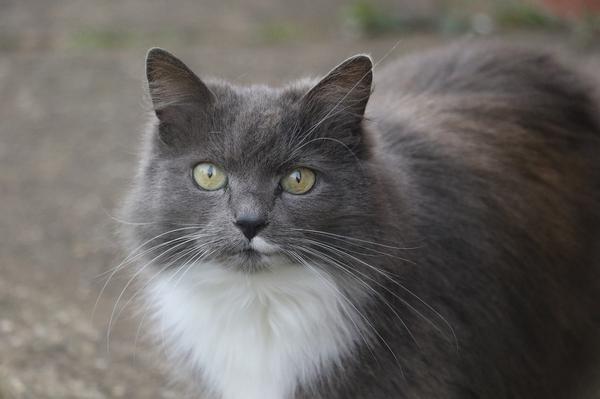
Ever wondered when kittens open their eyes?
Curiosity killing you, huh? 😊
I understand.
You're eagerly waiting for those tiny peepers to pop open.
Well, guess what?
I've got some juicy info just for you.
Let's dive in!
The Fascinating Process of Kittens Opening Their Eyes
Kittens typically open their eyes between 2 and 16 days old, although the timing may vary depending on breed and environment. It's important not to rush this process, as forcing their eyes open prematurely can cause harm. Patience is key while observing this captivating milestone.
Opening their eyes is a captivating process for kittens that brings joy to any cat enthusiast.
Can you believe that kittens generally open their eyes between 2 and 16 days old?
The exact timing may vary based on breed differences and their living environment.
So don't fret if your kitten takes a bit longer to unveil those tiny peepers.
Typically, around 8-12 days after birth, kittens' eyes naturally start to reveal themselves.
It's an exhilarating milestone to witness!
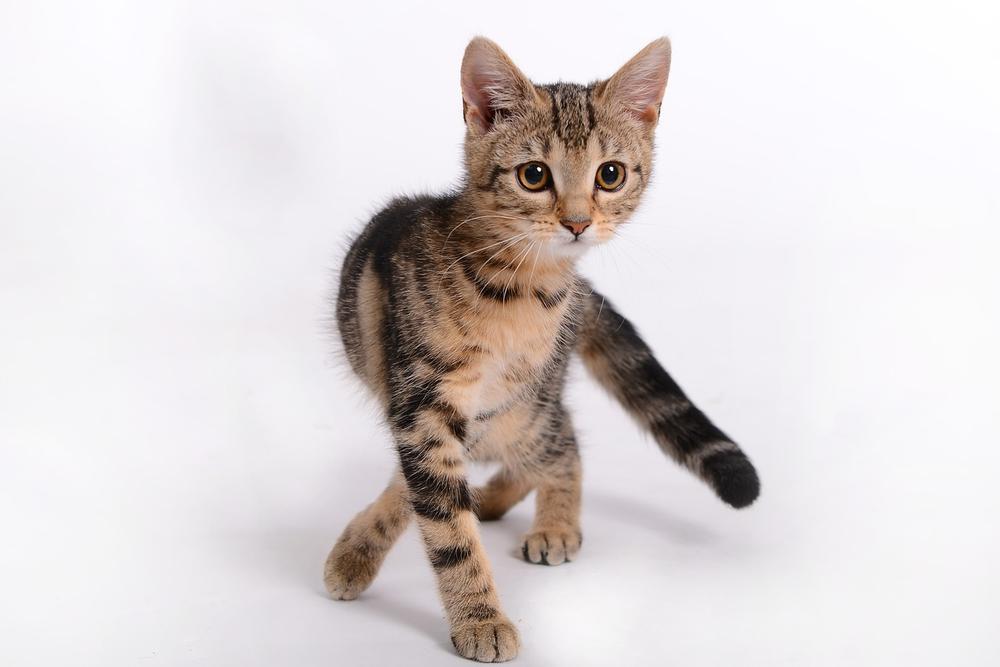
But here's the catch...
Don't try to force their eyes open prematurely. Doing so could harm delicate eye tissue, causing infections or permanent vision damage.
Even though a few kittens might open their eyes as early as 3 days old, it's not advisable.
Patience is key, my friend.
You'll be delighted to discover that within the first two weeks of life, kittens should have wide-open eyes, exposing them to the world.
So sit back, enjoy the journey, and observe those precious eyes soak in all the wonders surrounding them!
Main points I'll expand upon further down this article:
- Vision development in kittens progresses over the first few weeks.
- Complete dilation of both eyes usually occurs by 2 weeks old.
- Kittens can focus with both eyes by week 3.
- Clarity of vision improves as the protective fluid surrounding their eyes becomes clearer.
- Eye color of newborn kittens starts as blue and changes around 8 weeks old.
Now, you might be wondering how kittens go from opening their eyes to actually seeing the world around them.
Get ready to delve into the fascinating journey of vision development in these adorable creatures and discover just how their perception evolves over the first few weeks of their lives...
The Evolution of a Kitten's Vision in the Early Weeks
Kittens start their journey in total darkness.
They can't see anything when they're born, poor little things. But don't worry!
As time goes by, their eyes will gradually open, revealing the world around them.
Unlike us, their eyes open one at a time during the first week or so.
It's a slow process that can take a few days.
By about 2 weeks old, both eyes should be wide open and ready to explore. However, their vision is still a work in progress. The fluid around their eyes starts to clear up, making everything less foggy.
Even though their vision isn't perfect yet, it keeps improving over the next couple of weeks.
By week 3, their eyes will be able to see you much more clearly.
Here's an interesting fact for you:
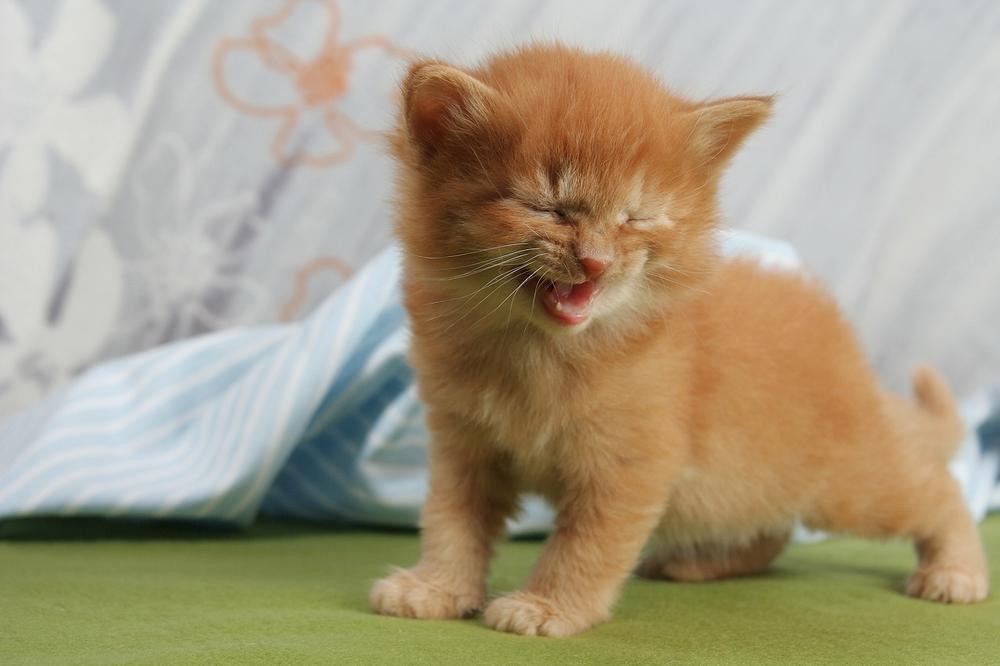
In the beginning, kittens often have blue eyes.
But their eye color isn't permanent until they're about 8 weeks old.
If your furball has white or light-colored fur, their eyes might seem brighter.
As for gray, green, or yellow eyes, those usually appear when they're 7 weeks or older.
Now, here's a fun fact!
Kittens have incredible night vision.
It's way better than what we humans have.
These little champs can see in the dark much easier than we can.
But be careful... Their developing eyes are sensitive, so ensure to keep them away from bright lights that could harm their delicate eyesight.
As kittens venture into the world, their once-dark eyes gradually transform into clear vision. Day by day, their sight gets sharper, bringing the world into focus before their curious little eyes.
And now, let's dive into the exciting development stages that kittens go through. I'll walk you through their milestones, from mobility to teething and litter box training, giving you a comprehensive understanding of their early growth...
The Stages of Kitten Development
Kittens go through various stages of development, from being blind and reliant on their mother to exploring their surroundings and developing their teeth. Their tooth development and mobility are closely interconnected, shaping their journey into adulthood.
Kittens go through different stages of development, and I'm here to break it down for you.
Right after birth, kittens are adorable fluffballs without much sight.
They snooze a ton and their eyes stay shut while their cute little ears lay low.
And yeah, they even have an umbilical cord still attached!
Around two weeks old, things start to get interesting.
Teeth begin popping up, which helps them move around more. You'll actually see kitten teeth!
During this time, they can squeak and wriggle a little bit.
When they reach three weeks, it's like they've uncovered the world overnight.
They become mini-explorers, taking their first steps and testing out the litter box (hooray!).
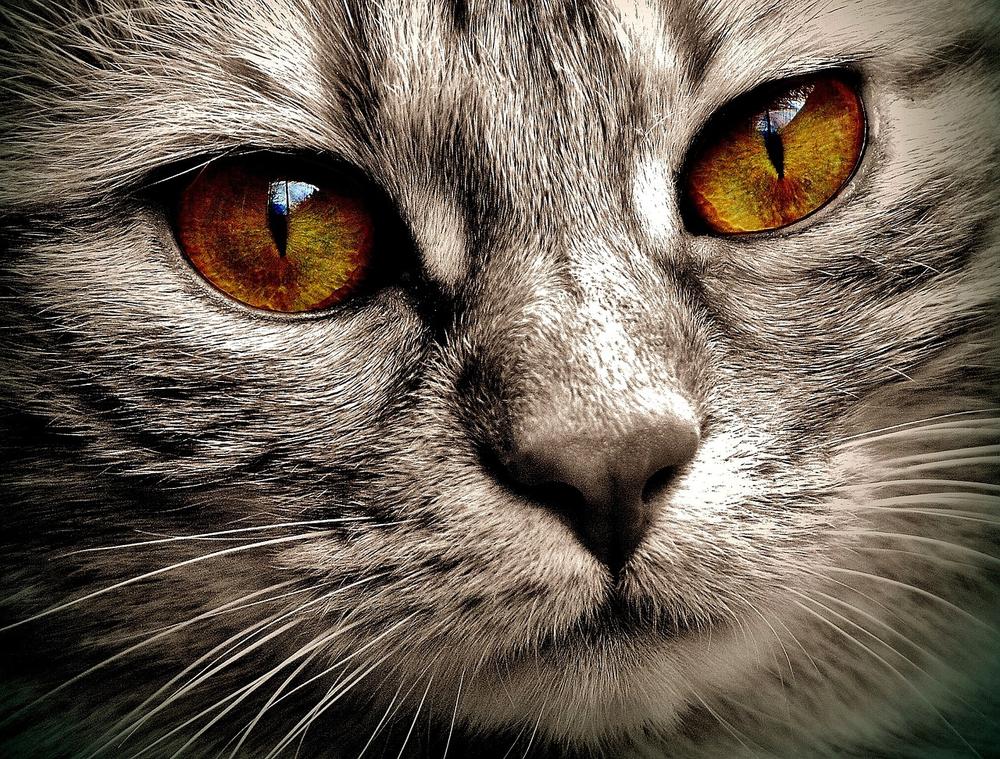
While their front incisor teeth start making an appearance, their confidence to roam also grows.
Four weeks old is when the real fun begins.
Kittens play as if there's no tomorrow.
They're pros at pouncing on shoelaces.
Oh, and guess what?
Those sharp canine teeth show up too.
By the time seven weeks pass, kittens are almost all grown up.
Their baby teeth are fully in, and their eyes start changing color.
You might catch glimpses of vibrant blues or greens.
It's truly fascinating and heartwarming to witness how quickly kittens grow and transform.
Tooth development and mobility go hand-in-hand, shaping their journey into adulthood.
Understanding the Physical Changes in Newborn Kittens
Newborn kittens rely on their sense of scent since they can't hear or see yet.
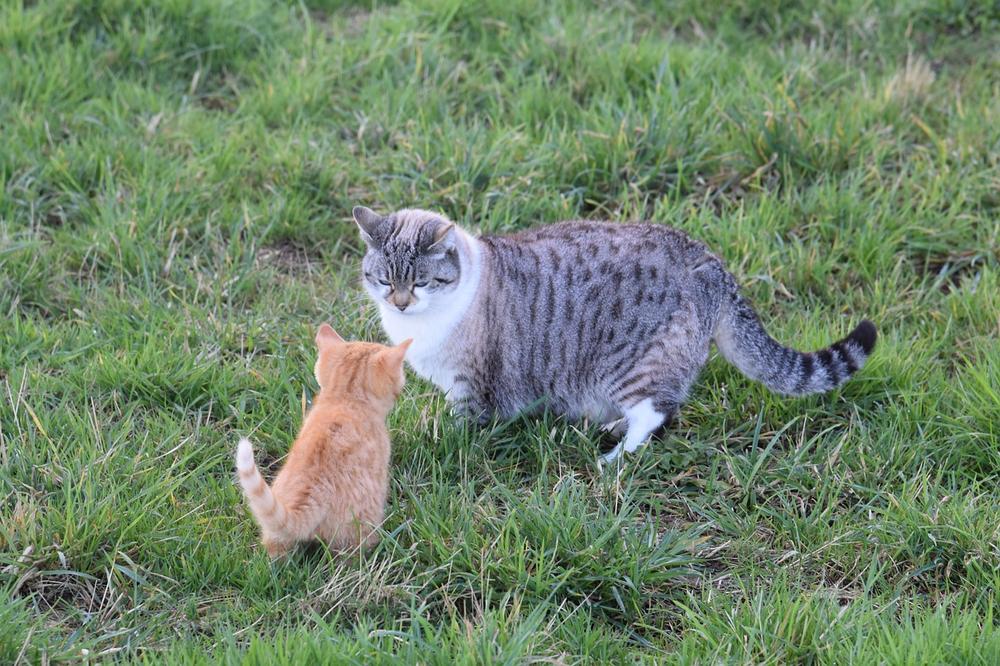
Please bear in mind a few key transformations:
- They heavily depend on their smelling abilities.
- The umbilical cord dries up and falls off within 1-5 days after birth, so don't rush to remove it yourself.
- At birth, they usually weigh between 50-150 grams, but by the time they're one week old, they've already doubled their weight.
- Around one week old, their eyes shut tight to shield them as they grow.
- A significant milestone happens at about six weeks when deciduous teeth appear, signaling their readiness for wet food.
Understanding these physical changes will help you better care for newborn kittens during their initial development stages.
And as I delve into the emotional aspect of their development, I can't stress enough the significance of maternal care and bonding in the early stages of a kitten's life...
The Role of the Mother Cat in the Development of Kittens
The maternal care and bonding provided in the early stages of a kitten's life are crucial for their socialization skills and emotional wellbeing.
During this developmental period, it is vital for kittens to interact with their littermates. Isolating a nursing kitten from her mother can have detrimental effects on her health.
To promote healthy development, you need to ensure that the mother cat and littermates are present and actively engaged with the kittens.
This interaction allows the kittens to learn important social skills and fosters their emotional wellbeing.
Failing to prioritize these fundamental aspects of their early lives can have long-lasting impacts on their overall development as feline individuals.
In conclusion, if you are interested in learning more about what to expect and how to help a cat giving birth for the first time, I highly recommend checking out my article on Cat Giving Birth for the First Time.
The Importance of Proper Nutrition for Developing Kittens
When it comes to the development of kittens, proper nutrition is absolutely crucial.
They need the right balance of nutrients in order to grow strong and stay healthy. So, let's get into the details of what you should be feeding your adorable furball.
Just like babies, kittens need to be fed frequently. During the first few weeks, they should be fed every two to three hours.
Yes, it's a lot of work, but trust me, it's worth it! 👶
In terms of quantity, kittens should gain around 12 ounces per day or 4 ounces per week. Keep an eye on their weight gain to ensure they are growing properly.
Now here's an important tip:
Don't give kittens cow milk. Contrary to popular belief, kittens can't properly digest cow milk and it can actually cause tummy troubles and diarrhea. Instead, opt for a special formula made specifically for kittens.
This formula provides all the essential nutrients they need to thrive.
Nursing is crucial for kittens during the first 48 hours after birth. This is when they receive important maternal antibodies through their mother's milk, boosting their immune system and protecting them from diseases.
Around five weeks old, kittens start developing premolars, which signals that they're ready to start weaning onto wet food. But remember, weaning takes time, so continue providing supplemental feedings to ensure a healthy weight.
At six weeks old, it's time for kittens to receive their first FVRCP vaccine, which protects them against common feline diseases.
And by eight weeks old, they're ready to eat independently and their adult eye color becomes permanent.
It's also at this age that they can be spayed/neutered and find their forever homes.
During this period of growth, kittens should gain around ½ ounce per day or 4 ounces per week.
Always use the appropriate formula based on your kitten's specific needs.
I hope these insights help you navigate the world of kitten nutrition.
Remember, every kitten is unique, so consult with your veterinarian for personalized advice.
By providing proper nutrition, you're ensuring a purrfectly healthy future for your little bundle of joy!
Tips for Caring for Newborn Kittens and Supporting Their Development
Maintaining hygiene is crucial for newborn kittens
Taking care of newborn kittens requires a lot of patience and attention to detail.
To ensure these adorable little creatures grow up healthy, let's focus on keeping them clean and cozy.
First things first, we need to create a warm and safe nest for them using blankets or towels.
That way, they'll feel comfortable as they grow and develop.
Now, let's talk about their bathroom needs.
After each feeding, I recommend gently stimulating their anal area with a warm and damp washcloth. This will help them eliminate waste easily and prevent any discomfort.
Oh, and don't forget to keep their cute little faces clean...
Just grab a warm washcloth and gently wipe away any dirt or debris around their eyes and noses.
This will keep infections at bay and promote good health.
Feeding and nutrition are key
When it comes to feeding newborn kittens, we want to ensure they get the proper nutrition they need to thrive.
So, here's the deal:
Special kitten formula is the way to go.
You'll need to feed them every 2-4 hours.
Yes, even during sleepless nights if you have orphaned kittens.
Now, let's think about their digestion.
Keep their food warm, my friend. It helps with the whole process and prevents stomach discomfort.
Veterinary care is vital for their well-being
Just like human babies, kittens also need regular veterinary care.
So, we should schedule wellness exams for them.
That way, the vet can check their all in all health and address any concerns you might have.
Vaccinations are super important for kittens.
Make sure they get their first round when they are 6 to 8 weeks old. Oh, and at two weeks old, you can have your precious kittens dewormed to fight off any potential parasites.
Lastly, spaying or neutering your kittens is essential for their health journey.
Experts recommend doing this when they are 5 to 6 months old, which aligns well with their initial vaccinations. It helps prevent diseases and contributes to a longer and healthier life for your furry friends!
Signs of Eye Infection in Kittens and How to Treat Them
Eye infections in kittens can be a worry. Keep an eye out for these signs and follow these tips:
- If you see redness around your kitten's eyes, it might mean they have an infection.
- Check for any strange discharge, like pus or mucus, coming from their eyes.
- Crusty eyes are also a sign of an infection.
- Swollen eyelids could indicate an infection as well.
- Use warm water and a gentle cloth or cotton ball to clean the infected eyes. This helps heal by removing any gunk.
- Make sure bedding and shared areas are clean to prevent spreading the infection to other kittens or cats in the house.
- Don't try opening the eyes of newborn kittens too early, it can damage their vision and increase the chance of infection.
- If the eye problems don't get better or get worse, talk to a vet. Finding and treating the infection early is crucial to avoid permanent blindness.
- Watch other cats in the house closely, because eye infections in kittens can easily spread.
Taking care of a kitten's eyes is important for their in essence health.
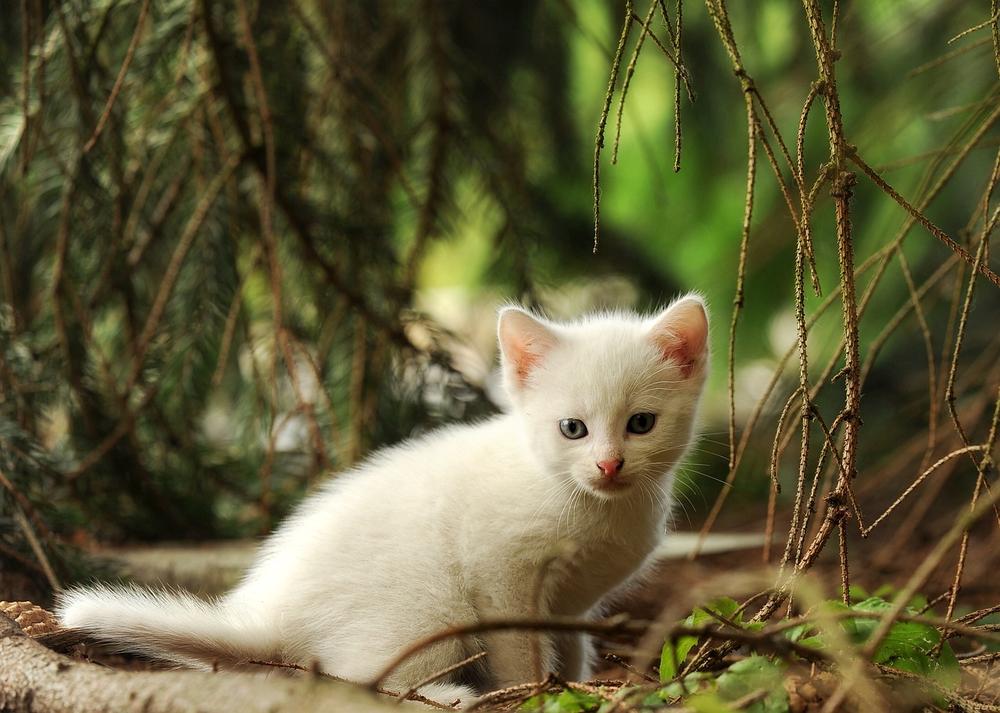
Stay alert and seek vet advice if you're worried.
And that wraps up today's article.
If you wish to read more of my useful articles, I recommend you check out some of these: Cat Giving Birth, How to Bottle Feed a Kitten That Wont Eat, Why Is My Cats Nose Cold, Cat Without Whiskers, and Do Cats Shed More When Stressed Scared
Talk soon,
-Sarah Davis